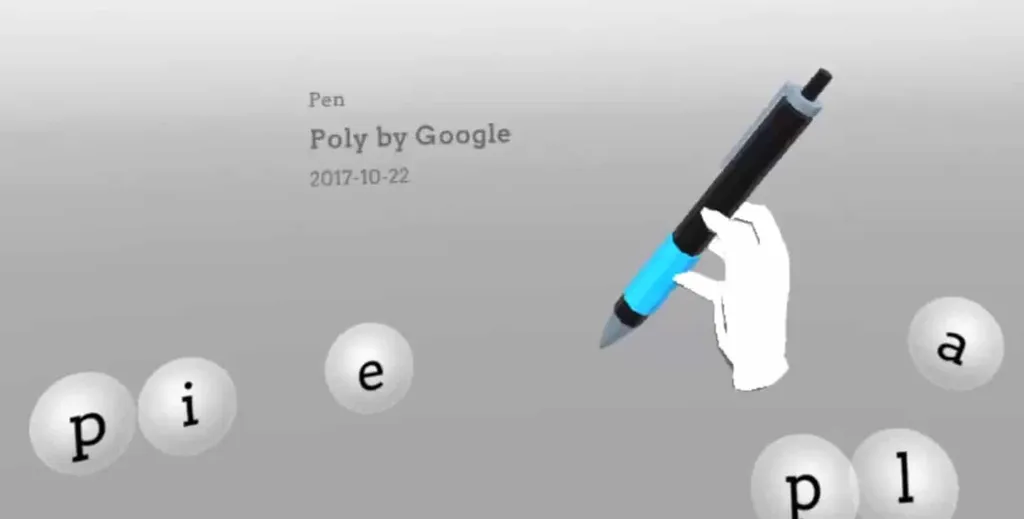A VR developer posted footage of a proof-of-concept mechanic that allows users to spell out any word and see it visualized as a Google Poly asset in real time. The implementation looks robust enough that it might be usable both as a game mechanic or for building worlds in virtual reality.
Using Google Poly to source assets at runtime. Now you can create almost anything! #VR #gamedev #indiedev #Oculus #Google #madewithunity pic.twitter.com/umtOiJGxMg
— Andy Bacon (@playfulbacon) February 14, 2020
As you can see the video embedded above, the tool allows the user to move letters around to form a word, which can then be squished together and turned into a Google Poly asset. The asset can then be pulled back apart, turning it back into the letters that formed the initial word.
We contacted the developer, Andy Bacon, for more information on why he developed the tool and whether he had any plans to release or develop it further. Bacon sees the tool being used as the core for a future game called ‘Lexicon’. He initially came up with a 2D prototype of the mechanic back in 2014 for a school project, but hadn’t developed it any further until recently. In September of last year, he made a VR prototype and posted it online. However, that initial VR version didn’t use Google Poly models and would require unique 3D assets for each possible word — a very big ask. To solve this problem, one Reddit user suggested that Bacon could look into integrating Google Poly models instead of creating unique assets.
This latest version of the tool incorporated the suggestion, and is able to use Google Poly assets for any word the user spells out with very little load time. According to Bacon, for models with lower levels of detail, the load time is almost unnoticeable. The results are also amusing and not always literal — ‘pine’ loads a pine tree and ‘paper’ loads a paper plane, for example.
Bacon hopes to develop the tool and the accompanying game, ‘Lexicon’, more in the future. For now, he’s working on Davigo, an upcoming a asymmetric VR game, but says the Davigo team has discussed working on Lexicon as their next project. That being said, comments online in response to the Google Poly integration have him thinking of other potential use cases.
“The video has sparked a lot of interesting conversation about VR education apps online,” said Bacon. “There seems to be a lot of interest in this idea to help teach kids spelling. Given the response, I’m considering pivoting the direction of the project, or at least developing a smaller learning mode alongside the puzzle game I envision.”
You can follow Andy Bacon on Twitter for future updates on the tool.


























